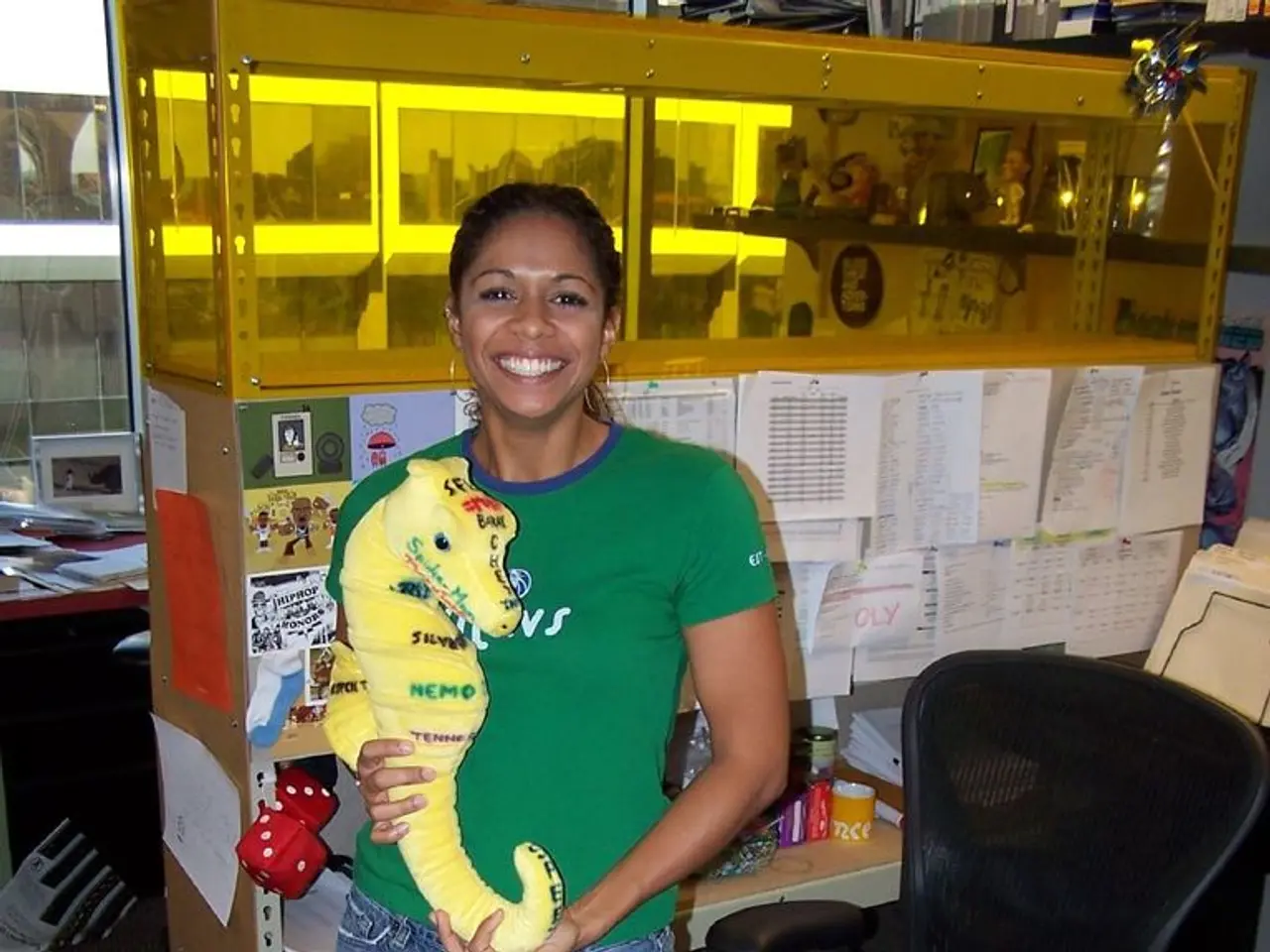Phrases useful for navigating a Danish-language work environment
In a Danish-speaking office in Denmark, knowing a few essential phrases can help you integrate smoothly and foster positive interactions. Here are some key phrases to get you started:
Greetings - "Hej" (Hello) - A simple, friendly greeting commonly used among colleagues. - "Hej alle sammen" (Hello everyone) - A greeting for a group of people. - "Godmorgen" (Good morning) and "God eftermiddag" (Good afternoon) - To greet coworkers politely at different times of the day. - "God aften" (Good evening) - A greeting for the end of the workday.
Polite Expressions - "Hvordan går det?" (How are you?) - A polite way to check in. - "Tak" (Thank you) and "Mange tak" (Many thanks) - To express gratitude. - "Vær så venlig" (Please) - A polite way to ask for something. - "Undskyld, må jeg..." (Excuse me, may I...) - For politely requesting or interrupting. - "Farvel" or "Vi ses" (Goodbye / See you) - When leaving the office.
Office Culture
Danish office culture tends to be informal but respectful. Using first names and a casual tone is appropriate once you are familiar with colleagues. However, maintaining politeness with “tak,” “undskyld,” and “vær så venlig” remains important.
Since many Danes speak English, mixing English and Danish phrases initially can be acceptable while you build your Danish skills. But showing effort to speak Danish daily is appreciated culturally. Listening to Danish workplace podcasts can help you get familiar with common expressions and office etiquette.
Collaboration and Teamwork - "Jeg ser frem til at samarbejde med dig" (I look forward to working with you) - A phrase for expressing eagerness to collaborate. - "Vi bliver nødt til at samarbejde for at finde en løsning" (We need to collaborate to solve this) - A phrase emphasising the importance of teamwork. - "Lad os drøfte strategien videre" (Let's continue to discuss the strategy) - A phrase for continuing a discussion or planning session.
Socialising and Building Relationships - "Skal vi spise frokost sammen?" (Shall we eat lunch together?) - A phrase for inviting a colleague to lunch. - "Kommer du til sommerferieafslutningen?" (Are you coming to the get together to mark the start of the summer holidays?) - A phrase for inviting a colleague to a social event. - "Vi burde lave et team-building arrangement snart" (We should organise a team-building event soon) - A phrase for suggesting a team-building activity. - "Det var hyggeligt at møde dig uden for kontoret" (It was nice to meet you outside of the office) - A phrase for expressing pleasure at meeting someone outside the office. - "Det var en fornøjelse" (It was a pleasure) - A phrase for expressing pleasure at meeting someone. - "Har du haft en god weekend?" (How was your weekend?) - A phrase for asking about someone's weekend. - "Skal vi tage en fyraftensøl sammen på fredag om tre uger?" (Should we go for a beer after work on Friday in three weeks' time?) - A phrase for suggesting a social outing. - "Vi holder fredagsbar i uge 37" (There will be drinks in the office after work on Friday August 12th) - An announcement of a social event.
Miscellaneous Phrases - "Nej, tak" (No, thank you) - A polite way to decline an invitation or offer. - "Ja, tak" - This means "yes, please". - "Tusind tak" - A more formal way to say "thank you a thousand times". - "Hvad hedder du?" and "Hvad var det, du hed?" - Phrases for asking someone's name. - "Velkommen til" - A welcome phrase. - "Hvad er tidshorisonten for det?" - This means "what kind of timescale are we looking at for this to be finished?". - "Intet problem" - This means "no problem". - "Nu bevæger vi lidt ud af en tangent" -- This means "we seem to have become sidetracked". - "Har du nogle spændende planer til weekenden?" - This means "do you have any exciting plans for the weekend?". - "Hvad er tidsplanen for i dag?" - This means "what's the schedule for today?". - "Et møde" - This means "a meeting". - "Frokostpause" - This means "lunch break". - "Venligst" - This is a written form of "please" used in communication. - "Det er et godt stykke arbejde" -- This means "that's a good piece of work". - "Har du tid til et videoopkald?" -- This means "do you have time for a conference call?". - "Det var hyggeligt at træffe dig" is a phrase for saying it was a pleasure to meet you. - "Er du frisk på opgaven?" - This means "are you up for taking on this task?". - "Selvfølgelig" - This word is used to mean "of course".
In Denmark, Danish-speaking colleagues may prefer to communicate in Danish over English. Therefore, learning a few essential phrases can help you navigate the office environment more comfortably and build stronger relationships with your colleagues.
- Embarking on a new journey of learning Danish can open doors to art, culture, and lifestyle experiences unique to Denmark.
- Delving into education-and-self-development resources, such as Danish workplace podcasts and online courses, can help improve your workplace-wellness and health-and-self-wellness.
- As you grow more comfortable with the language, you can incorporate Danish in your daily learning, news, and work discussions, fostering a deeper understanding and appreciation of Danish science and research.
- Building relationships with Danish colleagues will also provide opportunities for collaboration and teamwork in various fields, including learning and innovation, enriching your experience and broadening your horizons.




